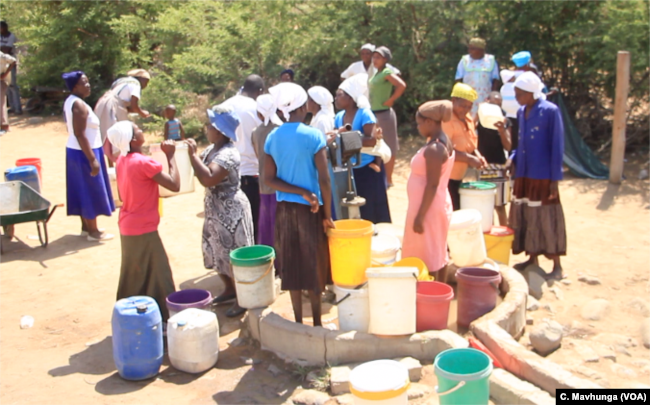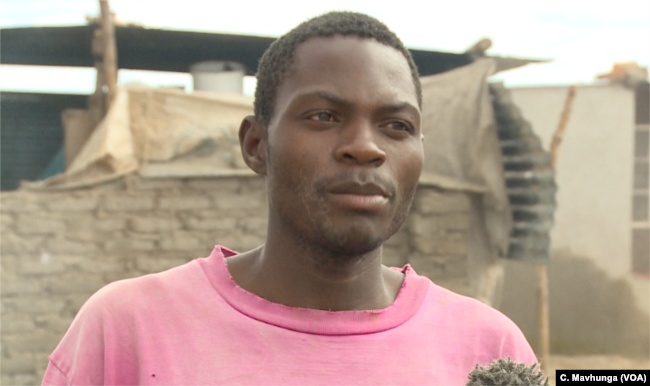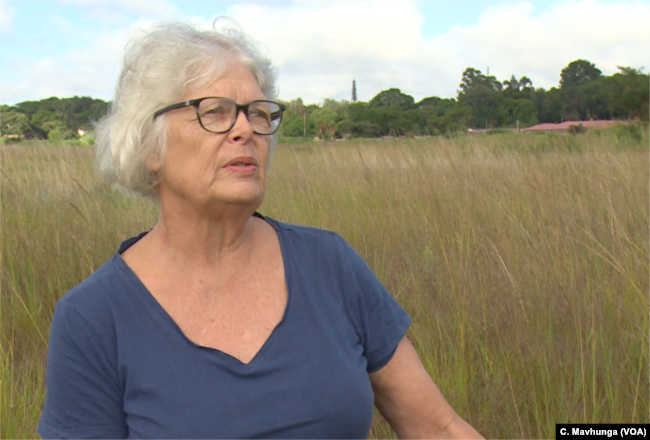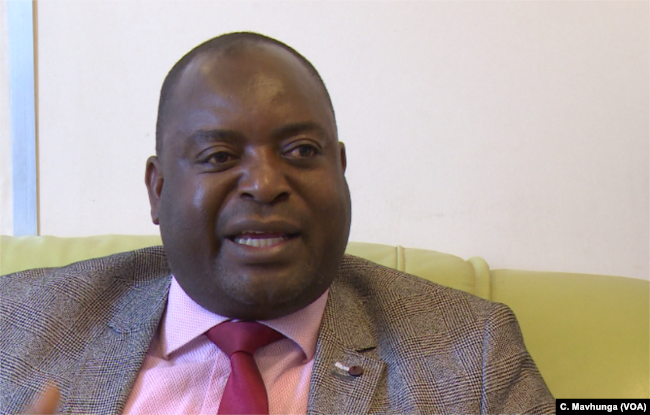POSA FINALLY THROWN OUT
CABINET yesterday approved the Maintenance of Peace and Order Bill which seeks to repeal the Public Order and Security Act (POSA), Protection of Personal Information Bill and the Freedom of Information Bill whose thrust is to repeal the Access to Infor…
OUTRAGE AS BOYS FILM NAKED GIRLS AT FALCON COLLEGE
A SCANDAL has rocked Falcon College after some school boys allegedly placed a spy camera in the girls’ changing rooms resulting in unsuspecting pupils from Girls College in Bulawayo, who had visited the elite Esigodini private school last Friday, being…
Zimbabwe’s President Mnangagwa invites opposition leaders for talks, here’s what was discussed
More than 20 politicians who contested Zimbabwe’s presidential election were invited by president Emmerson Mnangagwa for a meeting. Source: Zimbabwe’s President Mnangagwa invites opposition leaders for talks, here’s what was discussed – CNBC Africa HARARE (Reuters) – Zimbabwe’s President Emmerson Mnangagwa invited opposition leaders to a meeting on Wednesday to draw up terms for a […]
The post Zimbabwe’s President Mnangagwa invites opposition leaders for talks, here’s what was discussed appeared first on Zimbabwe Situation.
More than 20 politicians who contested Zimbabwe’s presidential election were invited by president Emmerson Mnangagwa for a meeting.
More than 20 politicians who contested July’s presidential election were invited, two of whom – Lovemore Madhuku and Noah Manyika – said they would attend. It would be the first meeting between Mnangagwa and opponents since he took power from Robert Mugabe in November 2017.
Manyika however said he believed conditions were not yet right for meaningful dialogue, which could only happen if hundreds of people detained during the crackdown were released and soldiers withdrawn from streets and checkpoints.
“It can only take place if, as the president promised upon his return from his overseas trip, the heads of those who have been responsible for brutalising citizens roll,” Manyika said.
On Tuesday, a nationwide strike by public sector teachers for better pay got off to a patchy start, as some stayed at home while others attended school but did not teach amid fears of further intimidation.
The president hiked fuel costs by 150 percent last month and immediately travelled abroad, triggering unrest that drew a violent response from security forces and eventually persuaded him to cut short his foreign tour.
On his return home, Mnangagwa promised action against brutality by police and troops and called for a national dialogue.
There was no immediate comment on Tuesday’s invitation from Mnangagwa or his spokesman.
Nelson Chamisa, who heads the main opposition Movement for Democratic Change party and who counts Manyika among his allies, could not be reached for comment.
The MDC believes Zimbabwe is reverting to the authoritarian rule that characterised the regime of long-time leader Mugabe, and says the election that confirmed Mnangagwa as president in July was rigged, an allegation the judiciary rejected.
‘REPORT ALL INTIMIDATION’
The southern African nation is mired in an economic crisis marked by soaring inflation and shortages of cash, fuel and medicines.
Many government workers are demanding wage rises and payments in dollars to compensate.
On Tuesday the striking Zimbabwe Teachers Association (ZIMTA), the biggest teaching union, said most of its members had stayed at home but that security agents had gone to some schools taking details of absent teachers.
The union accused authorities of spreading fake news to discourage teachers from going on strike after state media reported that the stoppage had been called off.
“Report all forms of intimidation, we are building a dossier of such,” ZIMTA said in a notice to members.
Cabinet ministers declined to answer questions on the strike at a media briefing in Harare.
In schools around the centre of the capital, most teachers appeared to have turned up for work, but some were not taking lessons, witnesses said.
In a classroom at a primary school in Harare’s Mbare township, a Reuters photographer saw one teacher eating from her lunch box in class while pupils sat quietly.
Zimbabwe has more than 100,000 public-sector teachers.
The post Zimbabwe’s President Mnangagwa invites opposition leaders for talks, here’s what was discussed appeared first on Zimbabwe Situation.
Zimbabwe Wetlands Construction Triggers Environmental Worries
Conservation groups warn the trend threatens the management of underground water and the availability of the resource in general Source: Zimbabwe Wetlands Construction Triggers Environmental Worries – VOA HARARE — In Zimbabwe, migration from rural to urban areas has created a demand for housing, leading to construction on wetlands, and concerns about the environment and water […]
The post Zimbabwe Wetlands Construction Triggers Environmental Worries appeared first on Zimbabwe Situation.
Conservation groups warn the trend threatens the management of underground water and the availability of the resource in general
Source: Zimbabwe Wetlands Construction Triggers Environmental Worries – VOA
HARARE — In Zimbabwe, migration from rural to urban areas has created a demand for housing, leading to construction on wetlands, and concerns about the environment and water supplies.
Conservation groups warn that the invasion of the country’s wetlands for infrastructure development and stream bank cultivation in urban areas threatens the management of underground water and the availability of the resource. They say the problem has been exacerbated by people moving from rural to urban areas.
Those people include Zivai Muchichwe, a father of three. Muchichwe says he built his home on a wetland three years ago as Harare battled to contain the migration from the rural parts of the country. Now, he says part of the dwelling has cracked and collapsed.
Muchichwe says he is waiting for authorities to tell him whether he will be there permanently as the structure needs to be reinforced. He says it was built hurriedly with cheap material and because of the location, the problem of water underground exists. “We thought we would be here for just a year,” he said.
Harare authorities say they will soon start water rationing because of low levels.
Dorothy Wakeling of the conservation group Harare Wetlands Trust says she was not surprised by the announcement. She says people are disturbing wetlands which are supposed to be gradually releasing water into the city’s water bodies.
“If you don’t have this and you have monoculture (the cultivation of a single crop in a given area), all you have is run-off. And you have lost the opportunity to get water into the ground which is so laid out by nature. It’s not there by mistake. And we are discarding it for buildings when that is the way we get our water; we can’t make water come any other way,” Wakeling said.
The group says it hopes that President Emmerson Mnangagwa’s government does not allow construction on the Monavale wetland which it says holds water for most Harare water bodies.
Steady Kangata from Zimbabwe’s environmental agency says the agency is working to ensure any disturbance of wetlands and stream banks is minimal.
“We must not be selfish when it comes to the environment. We are urging anyone who would want to do any form of construction to ascertain the nature and status of the piece of land they want to undertake their development…. The entire world…is about a green economy, the economy of the environment, where the environment is the pinnacle of any economy and we should mainstream environmental issues in anything we do,” Kangata said.
For now, Muchichwe’s family and neighbors remain uncertain as to whether they will have a place to stay. Given that the rainy season is not set to end until about late March, they might be sleeping on wet floors.
The post Zimbabwe Wetlands Construction Triggers Environmental Worries appeared first on Zimbabwe Situation.




